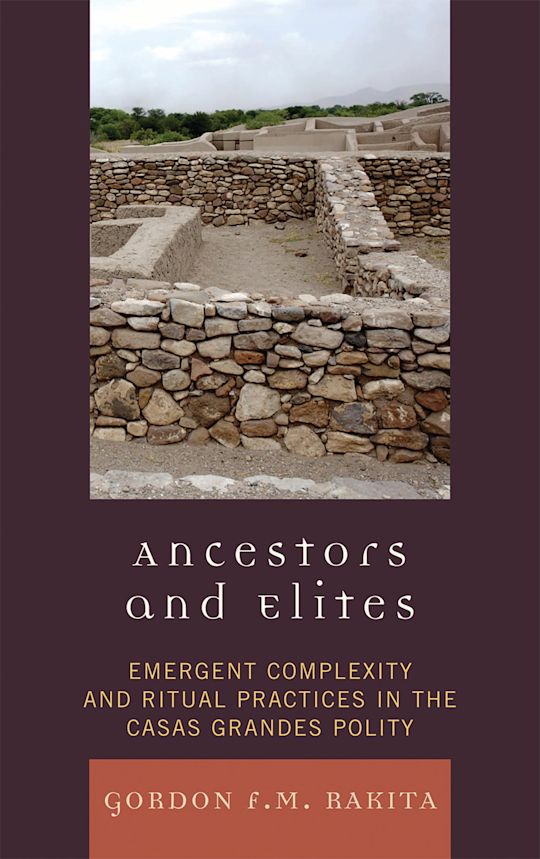- Home
- ACADEMIC
- Archaeology
- Archaeology - Other
- Ancestors and Elites
Ancestors and Elites
Emergent Complexity and Ritual Practices in the Casas Grandes Polity
Ancestors and Elites
Emergent Complexity and Ritual Practices in the Casas Grandes Polity
This product is usually dispatched within 1 week
- Delivery and returns info
-
Free US delivery on orders $35 or over
You must sign in to add this item to your wishlist. Please sign in or create an account
Description
Ancestors and Elites examines prehispanic ritual behaviors characteristic of the Casas Grandes region of Chihuahua, Mexico. Gordon Rakita analyzes the archaeological data from the site with respect to broader anthropological theories regarding both religious practices and the rise of complex societies. This confluence of empirical fact and general theory allows Rakita to explore in detail the complex, reciprocal relationship between ritual practices and developing social complexity at Paquimé, one of the best-documented archaeological sites in the region.
Table of Contents
Chapter 2. Emergent Complexity
Chapter 3. Ritual and Emergent Complexity
Chapter 4. Ritual Practices at Paquimé
Chapter 5. Interpretations and Conclusions
Product details
| Published | Apr 16 2009 |
|---|---|
| Format | Hardback |
| Edition | 1st |
| Extent | 220 |
| ISBN | 9780759111288 |
| Imprint | AltaMira Press |
| Dimensions | 9 x 6 inches |
| Series | Archaeology of Religion |
| Publisher | Bloomsbury Publishing |
About the contributors
Reviews
-
Gordon Rakita gives us an important addition to the literature dealing with Chihuahuan prehistory. Starting from a cultural evolutionary position, he uses anthropological theory and specific case studies to examine the role of ritual behavior in the development of the Casas Grandes region, focusing on the site of Paquimé and using the eight volumes of the Joint Casas Grandes Expedition as his primary data base. Rakita argues that ceremonialism and ritual behavior are separable strands that contributed both to communal solidarity and to the emergence of the authority and power needed by decision-making structures in aggregated communities. He thus firmly places ritual behavior on a par with economic and other factors in the cauldron of emerging complexity.
Jane Kelley, University of Calgary
-
The development of social complexity at the site of Paquimé, or Casas Grandes, has long intrigued archaeologists working in northwestern Chihuahua, Mexico and the American Southwest. Dr. Rakita's analysis of the role of ritual and religious organization in the emergence and sustainability of social inequality at Casas Grandes represents an innovative approach to this topic. Students and scholars alike, interested in the evolution of ritual behavior and its relationship to institutional inequality in aggregating communities, will find this book to be a valuable resource.
John Ravesloot, William Self Associates, Inc.
-
One of the most important, and interesting, topics in anthropology is how religion and its associated ritual practices facilitate but also constrain emerging social hierarchies and newly empowered leaders. Rakita expertly studies these topics, thereby expanding our understanding of the relationship between religion and social hierarchies in general, while also contributing to our understanding of Southwestern prehistory.
Christine S. VanPool

ONLINE RESOURCES
Bloomsbury Collections
This book is available on Bloomsbury Collections where your library has access.


































